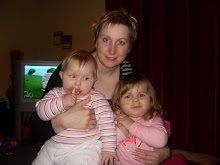I am a slow blogger, I apologise for this but due to a busy time over the last 2 weeks, it has been difficult to write down my ideas. I will try and do better and start reading other students blogs from this week.
Well, I have watched, listened, read and been amazed by the on line learning technology. I am excited, scared and confused at times when experimenting with these tools. I had no idea before enrolling in this course what I was in for.
I have joined in with two meetings so far, the first cut a little short due to difficulties....which can happen when dealing with technology! We moved on to the second meeting and I really enjoyed meeting and greeting everyone. It was exciting to hear people around the world particpating in a course based in New Zealand.
What is an online community.... I decided to look into the definition of 'a community' to gain an understanding about the thoughts and theories. I see a community linked to geographical locations but it is more than that. A community pursues a common goal, concern or interest on a voluntary basis. A community is interconnected and interdependent and often shares the same values and aims. A community is something we can choose to be part of or not.
I have never been into You Tube and found the clip vey motivating and interesting to see people connecting from everywhere imaginable. You tube is linking people. They talk about You Tube being an online community, being built through web cams and screens. Some benefits I see are an invisible audience that gives people confidence to be part of a community and participate in something they may not have chosen to do in the past. It does creat anonomity and a physical distance and allows freedom to express and experience without anxiety. I like the way poeple from all over the world can colaborate together as part of this online community.
A common thread I have noticed are words such as, common goals, connection, purpose, anonymous, contibutions, audience, linking, group and conversation. This is what I would look for when defining an online community.
I liked the deifinition of, ' if there is an audience for your converstaion, you'll find a community' (Building online communities).
A network talks about groups, connection, converstaion, flow of information, more of an equal say in an online community, openness and these are a similar set of words that are used when discussing communities.
When I think about the group we have within our course, I do see our community as very new but we do share a common goal, we have a connection, a link and all contibute in some way to the course content and online meetings whether it be by asking questions or sharing information and thoughts.
A couple a differences I do see about a face to face classroom community as I know them and an online classroom community such as the one I am now participating in. Online seems to be disjointed to me, you have to wait longer for responses online than you would face to face, the flow is not as present at online meetings as you would expect in a face to face meeting, it is not easy to pick up on cues as you don't see body language or visual cues, they are missing! There is a lack of humour and humor can be misinterpreted using email, bloggs etc It appears formal to me at this stage but this could be due the newness of the group. In saying this, I can see the benefits of online learning, people are connected from around the world, you can communite using technology that Inever knew existed, it is an exciting way to learn, it is versatile and innovative. I find it all mindblowing and can't stop talking about what I have learned so far with family and friends. So that in itself is a huge benefit for me.
